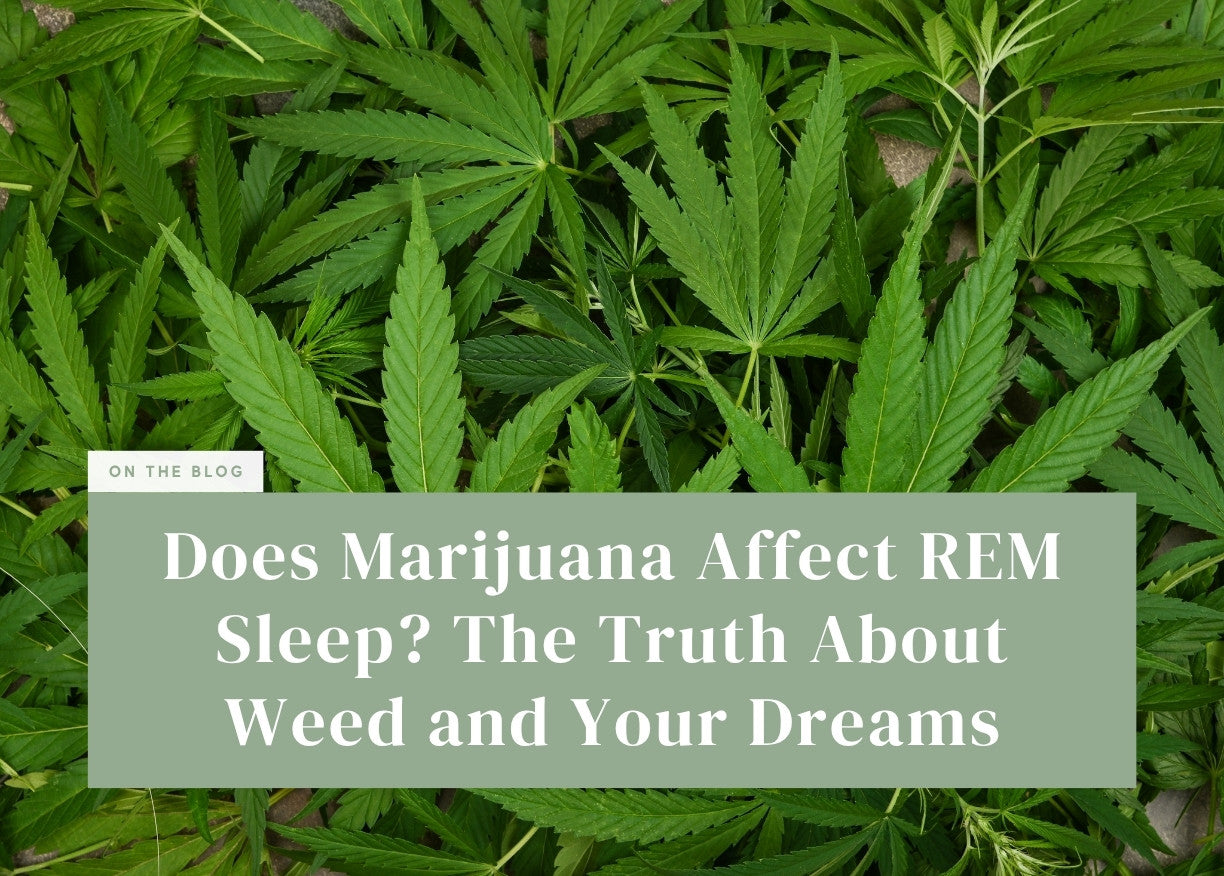Does Marijuana Affect REM Sleep? The Truth About Weed and Your Dreams
Marijuana is often marketed as a natural sleep aid.
And yes—it can help you fall asleep faster.
But what happens after you drift off is where things get complicated.
If you’ve noticed you don’t dream much after using cannabis, you’re not imagining it.
Let’s explore how marijuana affects your REM sleep, why that matters, and what happens when you quit.
1. First, What Is REM Sleep and Why Does It Matter?

REM (Rapid Eye Movement) sleep is the stage where:
-
Most of your dreaming happens
-
Your brain processes emotions and stores long-term memories
-
Your body goes through muscle repair and hormonal balancing
It’s essential for emotional stability, creativity, and waking up feeling refreshed.
2. Marijuana Reduces REM Sleep—Here’s How

Studies show that THC (the psychoactive compound in marijuana) can significantly reduce the amount of time your brain spends in REM sleep.
What does that mean?
❌ Fewer vivid dreams
❌ Less emotional processing
❌ Potentially reduced sleep quality over time
And if you’ve ever stopped using cannabis after regular nighttime use, you may have noticed intense, vivid dreams. That’s called REM rebound, and it’s your brain trying to catch up.
3. Is It All Bad? Or Does Marijuana Help Sleep in Some Ways?

In low to moderate doses, marijuana may help:
-
People with insomnia fall asleep faster
-
Chronic pain sufferers sleep more comfortably
-
Reduce nighttime awakenings for some users
Note:
But here’s the catch: while it may improve how fast you fall asleep, it can weaken the quality of sleep by altering natural sleep architecture.
4. Tips for Using Cannabis Without Harming REM Sleep (If You Choose To)

If you’re going to use marijuana for sleep, consider this:
-
Choose low-THC, high-CBD strains (CBD doesn’t seem to disrupt REM the same way)
-
Use it 1–2 hours before bed, not right before lying down
-
Take regular breaks to avoid long-term suppression of REM
-
Use it sparingly, and not as a replacement for good sleep hygiene habits
5. Better Alternatives for Deeper Sleep & Dream Cycles
Want to fall asleep faster and protect your REM sleep?
Try this combo instead:
-
Breathing exercises or magnesium before bed
-
A mattress and pillow setup that keeps your spine aligned and cool
-
Natural bedding (like our bamboo sheets and plant-based pillow) that keeps you comfy all night
-
And a consistent wind-down routine that doesn’t involve screens or substances
Final Thoughts: Marijuana & Sleep—A Tradeoff Worth Considering
Yes, marijuana can help you fall asleep.
But if you rely on it long-term, you might be sacrificing the deepest stages of restorative sleep—especially REM.
If dreams, memory, and emotional health matter to you (and they should!), think twice before lighting up nightly.





